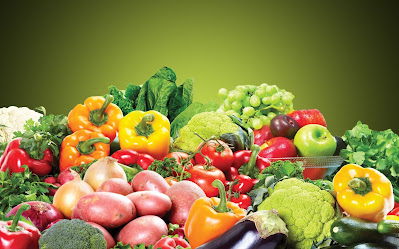What is organic farming? How does it encourage healthy living? Organic farming is a method of agriculture that relies on crop production on green manure, compost, and biological pest control instead of utilizing pesticides and herbicides. Therefore such a method can support individuals having a wholesome lifestyle because of the deficiency of chemical content.
These organic agricultural techniques are globally regulated and legally required by several countries. In our organization, all our suppliers' farms are fair-trade and
organically certified by a worldwide certifying body. Fair-trade in the thought that we follow the universal fair-trade rules primarily in terms of wage compliance obligations and child labor laws. Organic also because the only allotted manure in our farms is SALT. It is based on minimal usage of off-farm inputs and on administration methods that refurbish, keep, and become environmental balance.
With the rising environmental consciousness of the general public here and away the originally supply-driven
organic action transforms into a demand-driven one. For coconut farmers, incentive prices attracted farmers to transform their farms into organic.
Organic farming techniques are a fusion of scientific consciousness of the environment and the latest technology because practices are based on naturally happening organic processes. It is more concerned with preserving the atmosphere and acting in harmony with current ecosystems, including keeping water, soil, and energy, and utilizing renewable resources and natural farming cycles.
Moreover, organic foods are not significantly absolutely chemical-free. They may be developed on land not before applied for
organic food production and, therefore, might include artificial residues. However, the pesticide residues in organic food are considerably lower than those detected in foods produced with artificial chemicals.
Most people
buy organic food products because they are concerned regarding pesticides, additives, antibiotics, or other artificial residues. Although pesticide residues in
fruit and vegetables are observed, many people believe organic food is healthier. Some people bother about the long-term wellness, economic, and environmental outcomes of genetically produced foods and choose organic foods.
Organic foods support healthier and more sustainable usage of natural resources. Modern farming techniques, including unnecessary usage of chemicals, have begun to decline in soil productivity, and a rise in salinity and blue-green algae in waterways across many years. Organic producers attempt to reduce damage to the atmosphere by using physical weed control, and animal and green fertilizer.
Organic food is often more costly than conventionally-produced food because organic farming usually runs on a smaller measure. The production is more labor-intensive and yields are commonly smaller. It is a known truth that when you apply herbicides and pesticides, you get huge production.
Despite this obstacle, when we patronize organic products, we have a guarantee that our lives would be healthier, safer, and longer.




